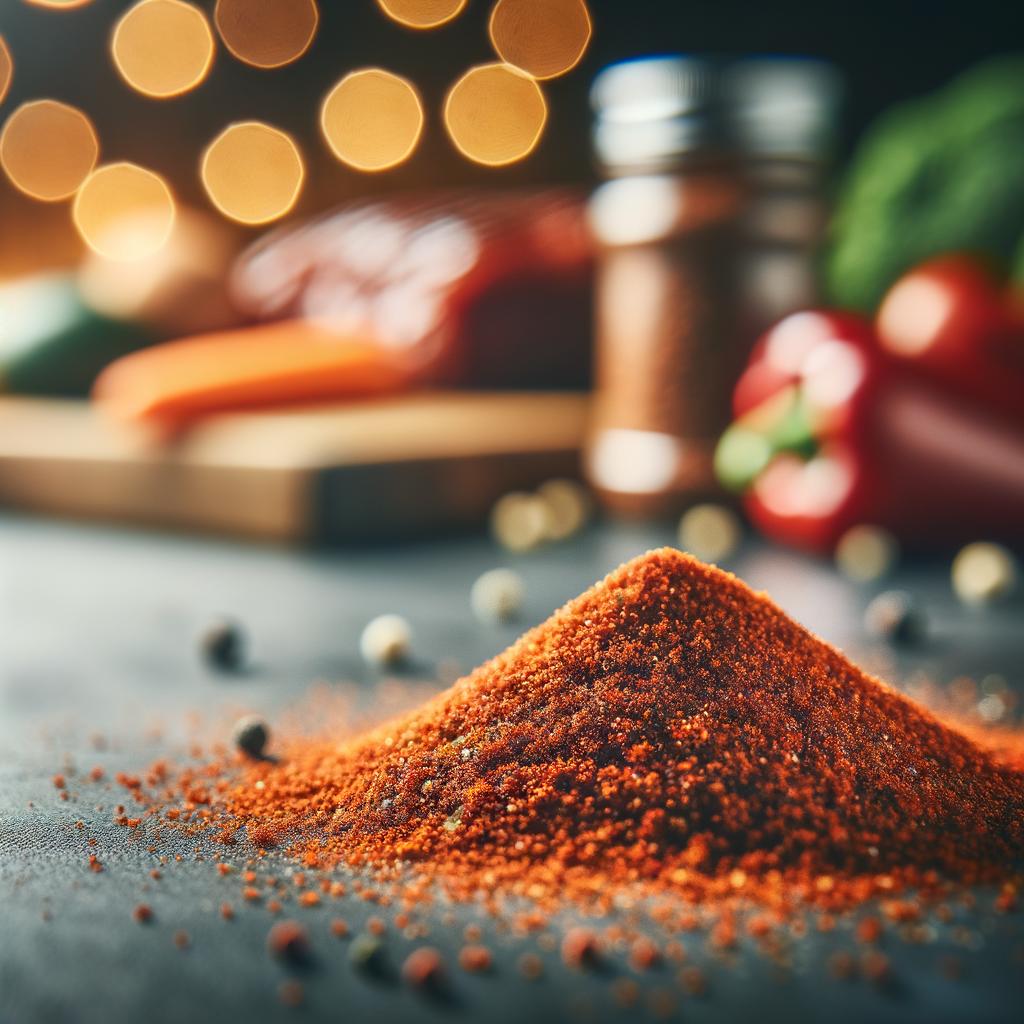Barbecue Rub

Description
Barbecue rub, a tantalizing blend of spices and herbs, is the unsung hero in the world of grilling and roasting. A symphony of granulated textures, it ranges from coarse to fine, depending on the ingredients used. Its color palette is a vibrant mix of earthy browns, fiery reds, and sunny yellows, reflecting the spices within. The flavor profile of a barbecue rub is a complex tapestry, balancing the heat of chili, the sweetness of sugar, the smokiness of paprika, and the earthy notes of herbs like thyme and oregano. Its unique characteristic lies in its adaptability - each barbecue rub can be tailored to personal taste, making it a truly personalized culinary experience.
Primary Uses
Barbecue rub is the secret to adding depth and complexity to grilled, smoked, or roasted meats. It's a key component in American barbecue culture, particularly in the Southern and Midwestern regions, where it's used to season pork ribs, beef brisket, and chicken. Each region, and even each pitmaster, has their own signature rub. Beyond the grill, barbecue rub can be used to season roasted vegetables, add a kick to popcorn, or even rim the glass of a spicy cocktail. Its non-culinary uses are minimal, but it holds a significant cultural place in American cooking, symbolizing the communal joy of barbecue gatherings.
History
The history of barbecue rub is as smoky and rich as the flavor it imparts. Its origins can be traced back to the indigenous tribes of the Americas, who used a mix of ground spices and herbs to preserve their meat. This practice was adopted and modified by the settlers, leading to the birth of regional barbecue styles. Over time, the humble barbecue rub has evolved from a simple preservation method to a gourmet art form. It's steeped in folklore and stories, with pitmasters guarding their rub recipes as fiercely as family secrets.
Nutritional Information
While the nutritional value of a barbecue rub can vary based on the ingredients used, it's generally low in calories but high in flavor. Spices like chili and paprika provide a dose of Vitamin A and E, while herbs like thyme and oregano add a hit of Vitamin K. However, it's important to be mindful of the salt and sugar content in barbecue rubs, as excessive consumption can lead to health risks like high blood pressure and diabetes. Compared to marinades, which often contain oil, barbecue rubs can be a healthier option for adding flavor to your food. As always, moderation is key to reaping the benefits of this delectable blend.

